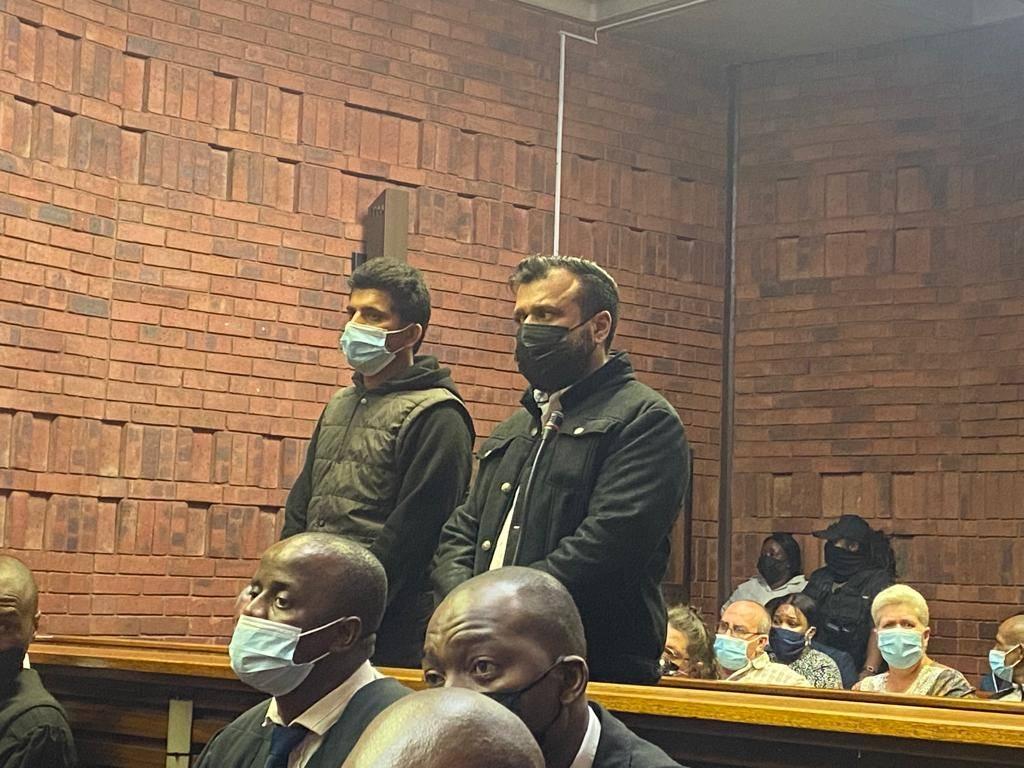Africa-Press – South-Africa. The lawyer representing one of the alleged Gupta associates in the R37.7 million Vrede dairy farm fraud trial, has argued that the “backbone” of the charge sheet was based on the State’s “misconception”, adding his client denies any wrongdoing.
At the centre of the case is the so-called “new” milk pasteurisation plant which was imported into the country, and which was suspected to be excessively high.
The Gupta-linked Estina company had entered into an agreement with the Free State agriculture department in 2012 to establish and implement a dairy farm project in Vrede meant to benefit emerging farmers and other identified beneficiaries in the area.
It’s alleged that none of those groups benefitted and that instead millions of rands were siphoned into Gupta coffers.
On Wednesday, the Pretoria Magistrate’s Court heard that when the consignment was imported, they were cleared by a SARS automated system, and no risks were flagged.
SARS investigator Piet Swart was back in the hot seat for a third day on Wednesday and said: “Nobody examined the documentation, invoice, or anything… because of the algorithm of the system, no risk was identified.”
On trial are two alleged Gupta associates – Kamal Vasram, and co-accused Saliesh Indurjeeth.
Swart had earlier explained that new goods imported into the country did not require a permit, but second-hand goods required a declaration of customs supported by an import permit.
Special report | The Gupta Leaks
According to the State, the imported goods were not “new” equipment, but second-hand and/or used goods or scrap. The State also alleges the accused did not apply for a valid permit to import second-hand.
The accused are charged with fraud and the contravention of regulations on international trade administration and exchange control.
They both pleaded not guilty to the charges.
Vasram and Indurjeeth were arrested early last year after they were “directly linked” to the failed dairy farm project.
Advocate Jaap Cilliers, representing Vasram, said he still didn’t understand how a system could release goods without them being checked first.
However, Swart indicated there was just not enough staff to stop every consignment coming into the country, although this was not always the case.
Cilliers said after having perused the docket, he and his team noticed the State had, in its possession, the constructor’s certificate of the specific equipment directly relevant to the case.
The advocate said the document clearly shows that the equipment was manufactured for export purposes in 2014.
Swart couldn’t comment on this.
“The significance is that this documentation in the possession of the State at the time showed that the backbone of the charge is based on the wrong premise,” said Cilliers.
He added that the documents showed that the equipment was specifically manufactured for export for the Vrede dairy farm project.
Again, Swart said he could not comment. Cilliers then said the equipment manufacturer certified it on 13 November 2013.
But Swart said the invoice was dated September 2013 instead of November.
“You order before they start manufacturing,” Cilliers responded.
Swart then said the consignment was not paid in full, stating that there was a $100 000 shortfall.
But Cilliers said:
It was manufactured in 2013 and then sent to Durban in 2014. Cilliers then proceeded to ask why Swart had failed to obtain information about the consignment from the manufacturer.
Swart then said there was no indication who the manufacturer was, adding SARS had no investigating authority in India.
Cilliers then said Swart should have gone to Vrede dairy farm in the Free State and checked who the manufacturer was.
“There was no need to,” Swart responded, adding the reason the matter was investigated was because there was “more than one fault”, which includes the nature and quality of the goods and also the value.
But Cilliers took issue with this, saying Swart obtained statements from different departments asking if the accused had obtained a permit for second-hand equipment, but could not take a drive to the Free State to establish who the manufacturer was.
According to the Investigating Directorate (ID), investigations revealed Estina submitted “customs clearance documents [a SAD 500 form and invoice] in support of a VAT refund claim”.
ID spokesperson Sindisiwe Seboka said at the time, “the customs declaration was then scrutinised, whereupon the declared value of over R37.7 million for a so-called ‘new’ pasteurisation plant was suspected to be excessively high”.
“The suspected overpriced pasteurisation plant, which was imported from India, was rather invoiced to Estina by Gateway Limited in the United Arab Emirates.”
Seboka added evidence that was already in the public domain suggested Gateway was used and controlled by the Guptas as a conduit to launder money and to extract funds from South Africa.
“The State further alleges the overstated or inflated value was intentionally and unlawfully used by Estina and its sole director – Vasram – to launder funds from South Africa to the prejudice of the taxpaying public in general.”
In the charge sheet, the State alleged on 5 December 2013 and 18 March 2014, the two accused instructed and/or caused the clearing agent to electronically submit a bill of entry for importation.
The bill of entry was transmitted to SARS via the EDI system.
“By doing so, the accused declared to SARS that the goods imported were, amongst others, new and valued at US$3 448 800 (R37 718 634).”
For More News And Analysis About South-Africa Follow Africa-Press






